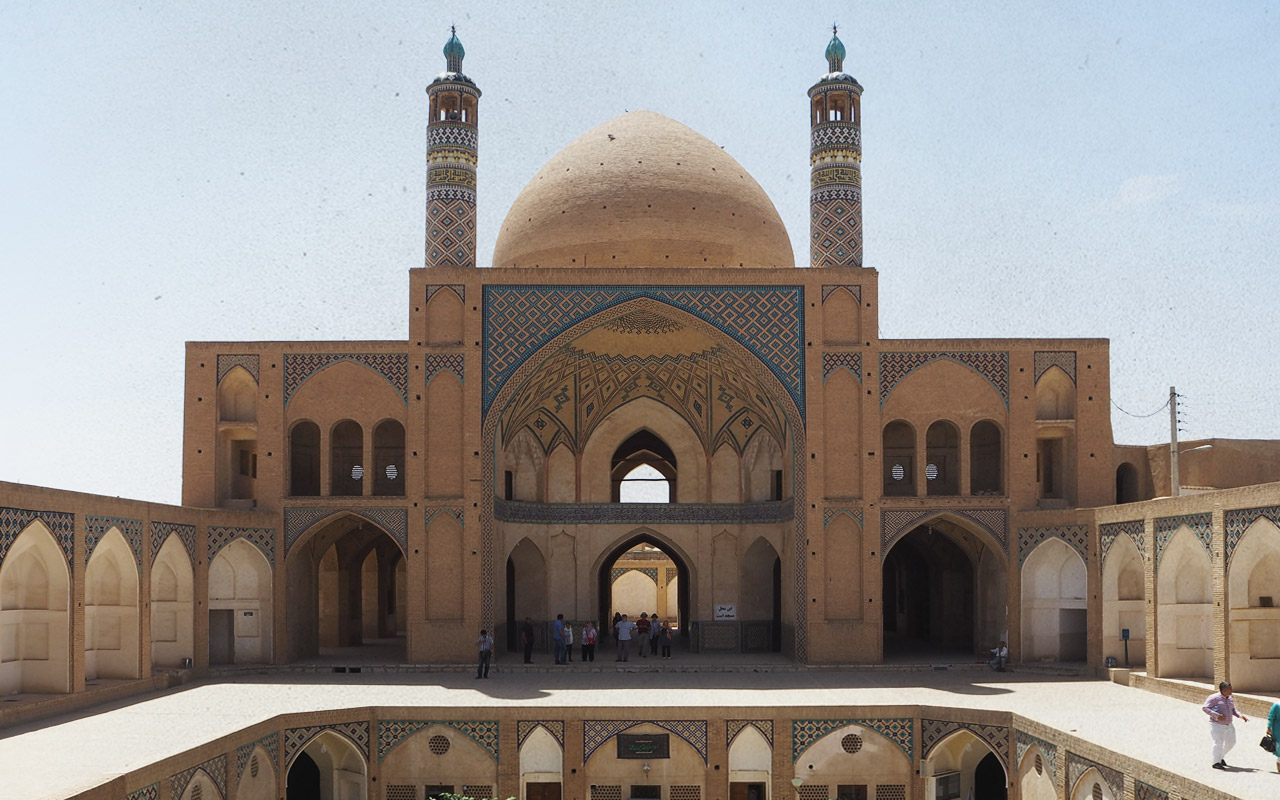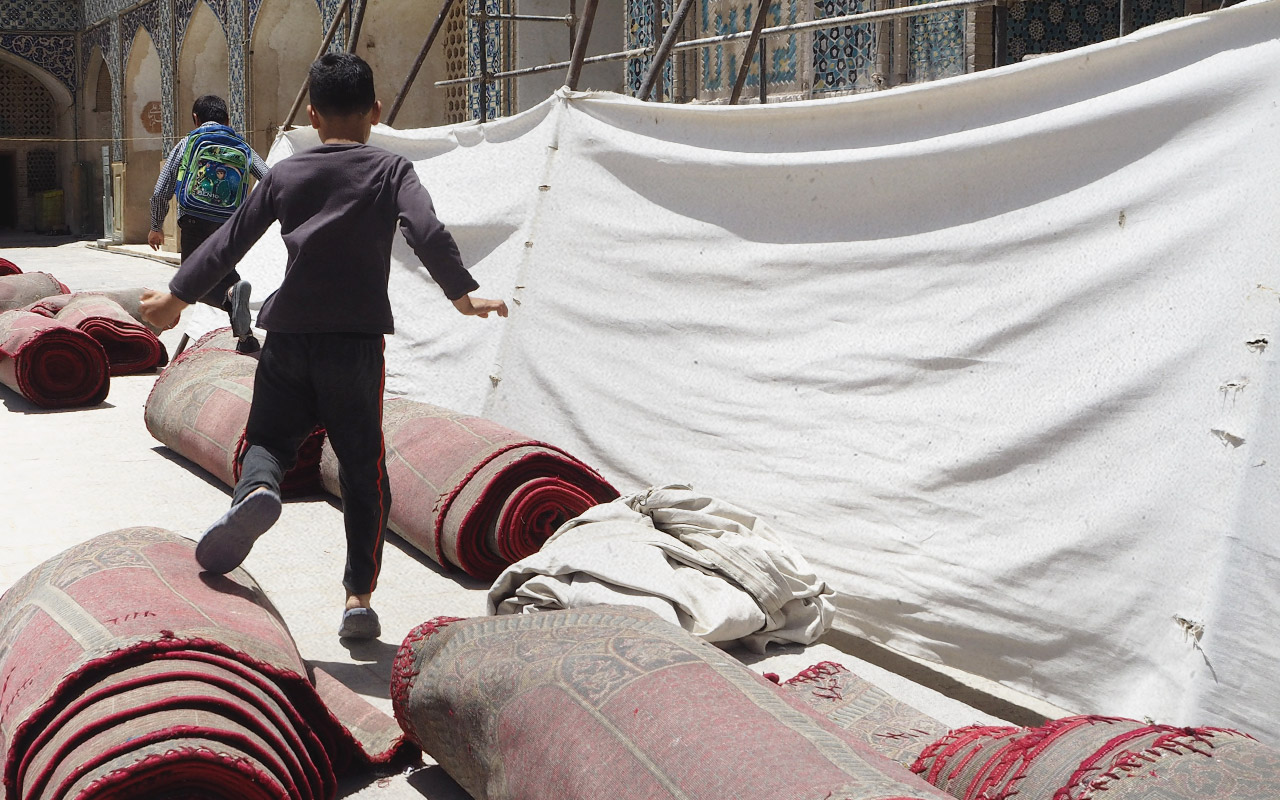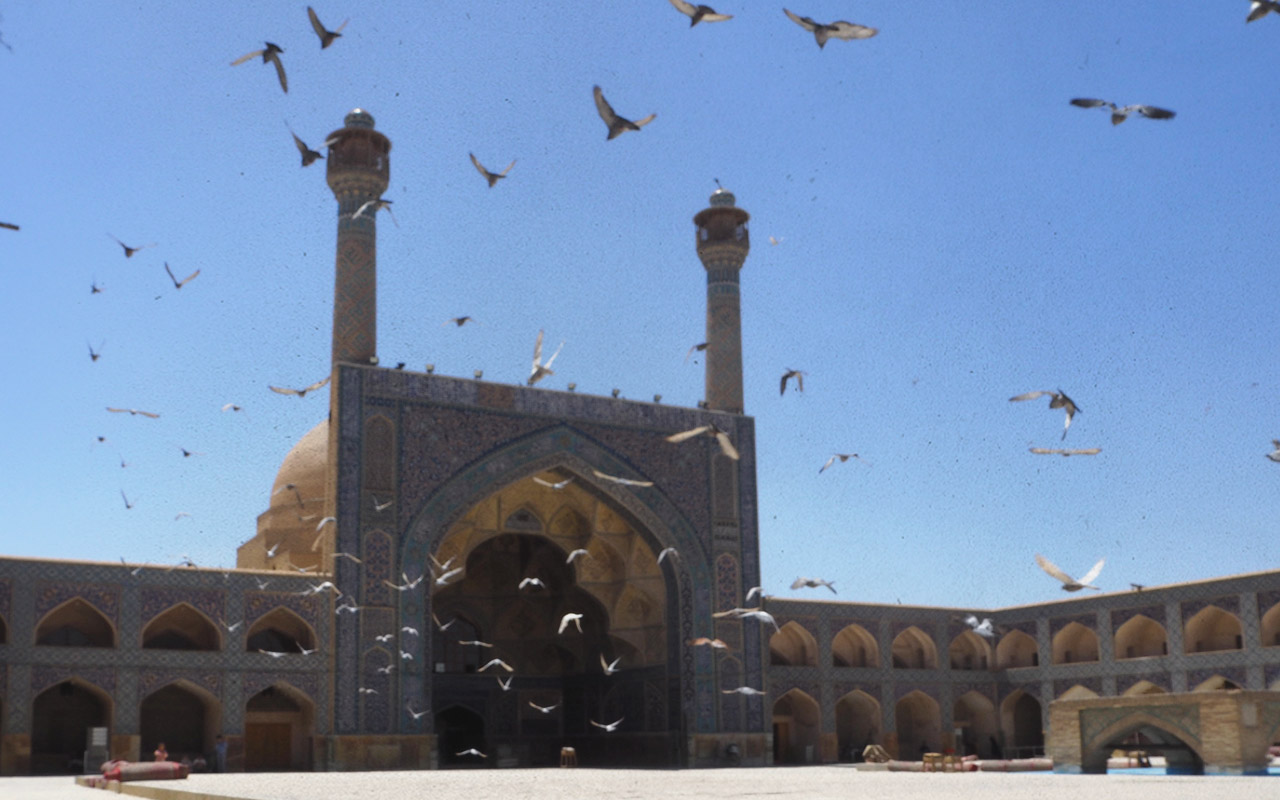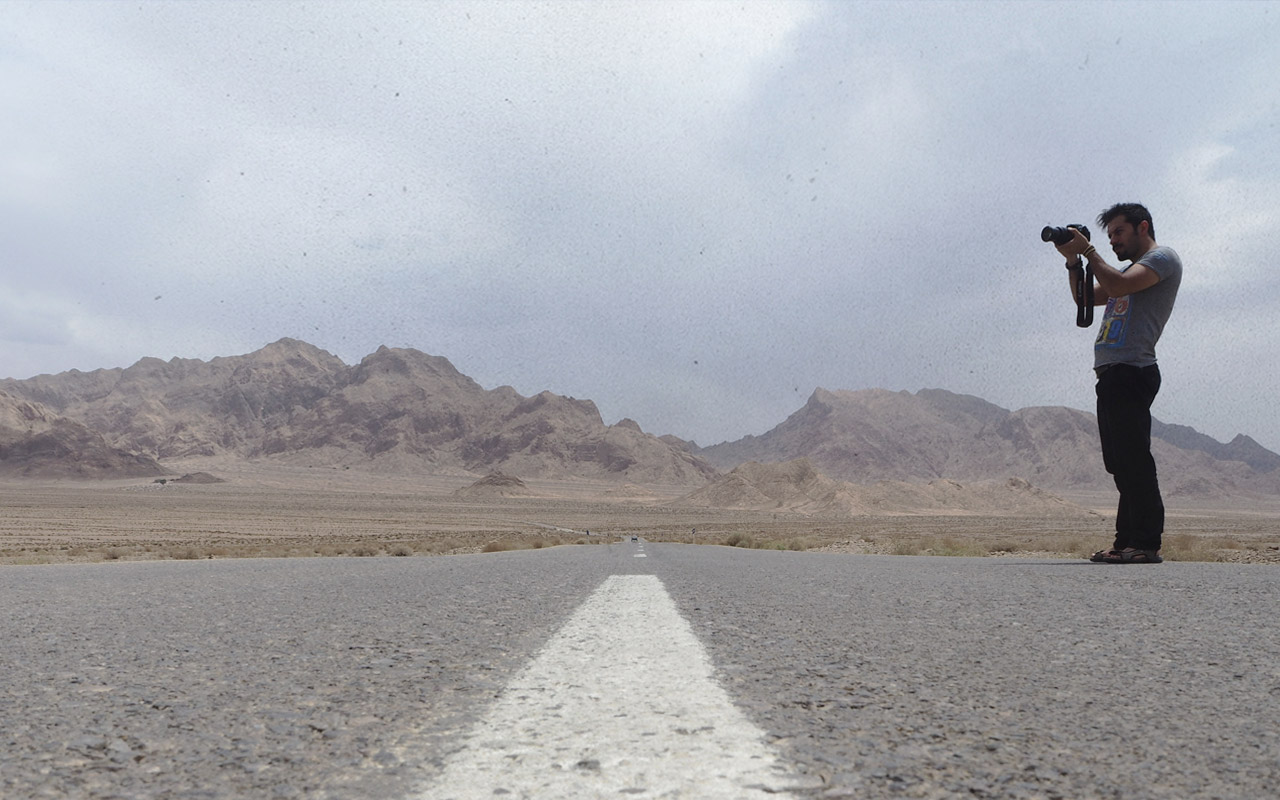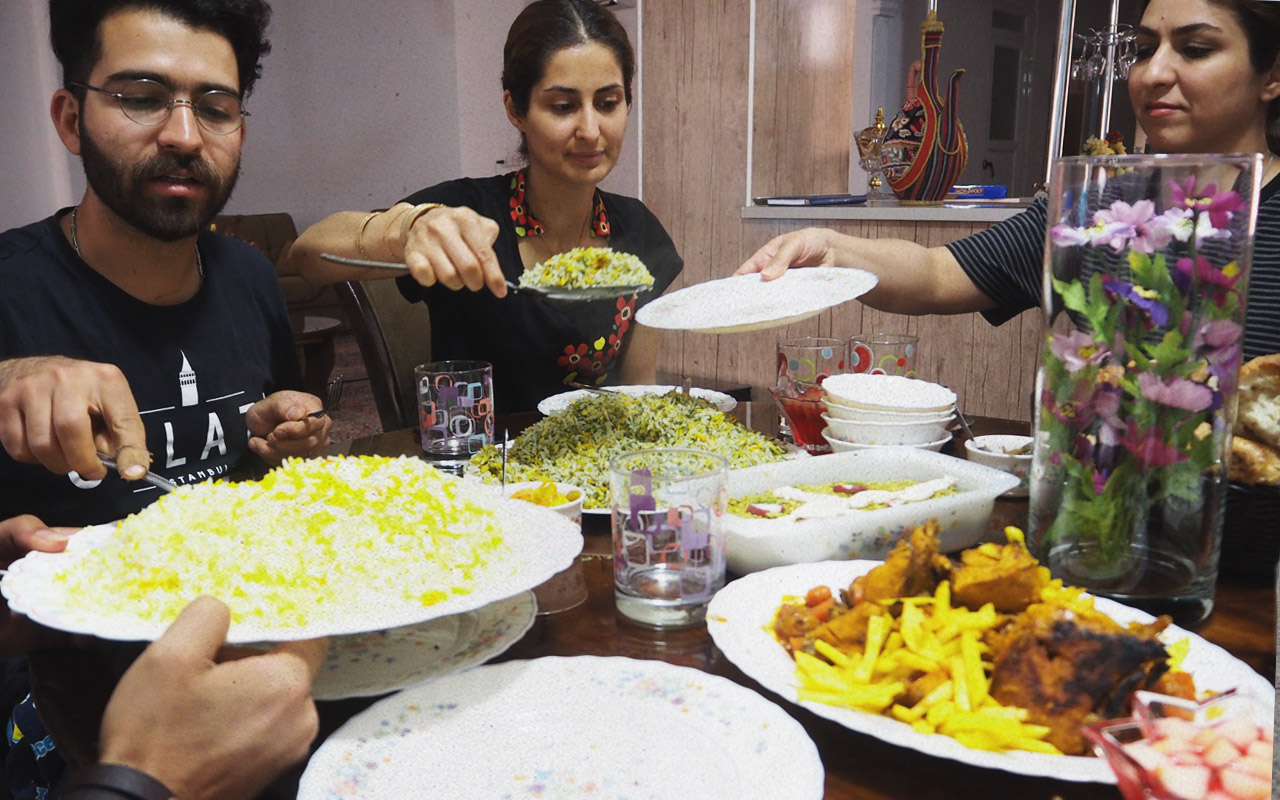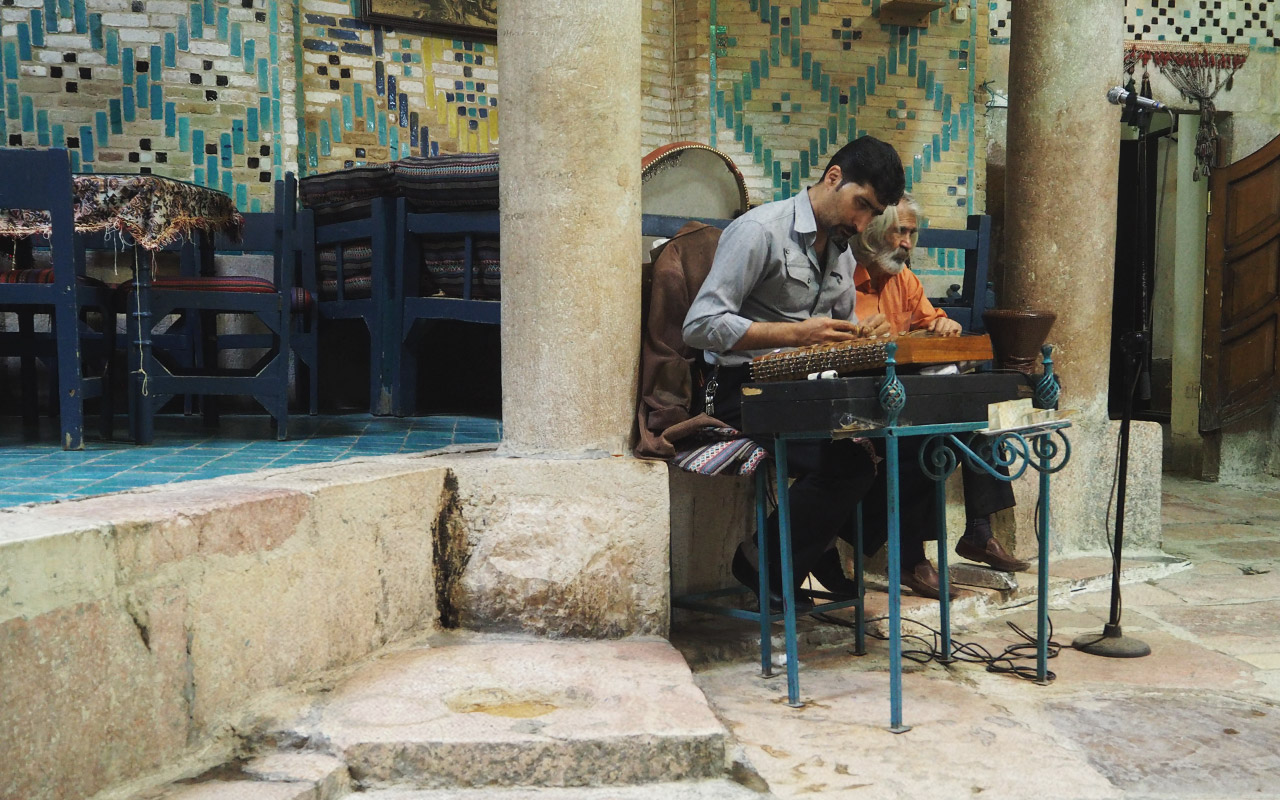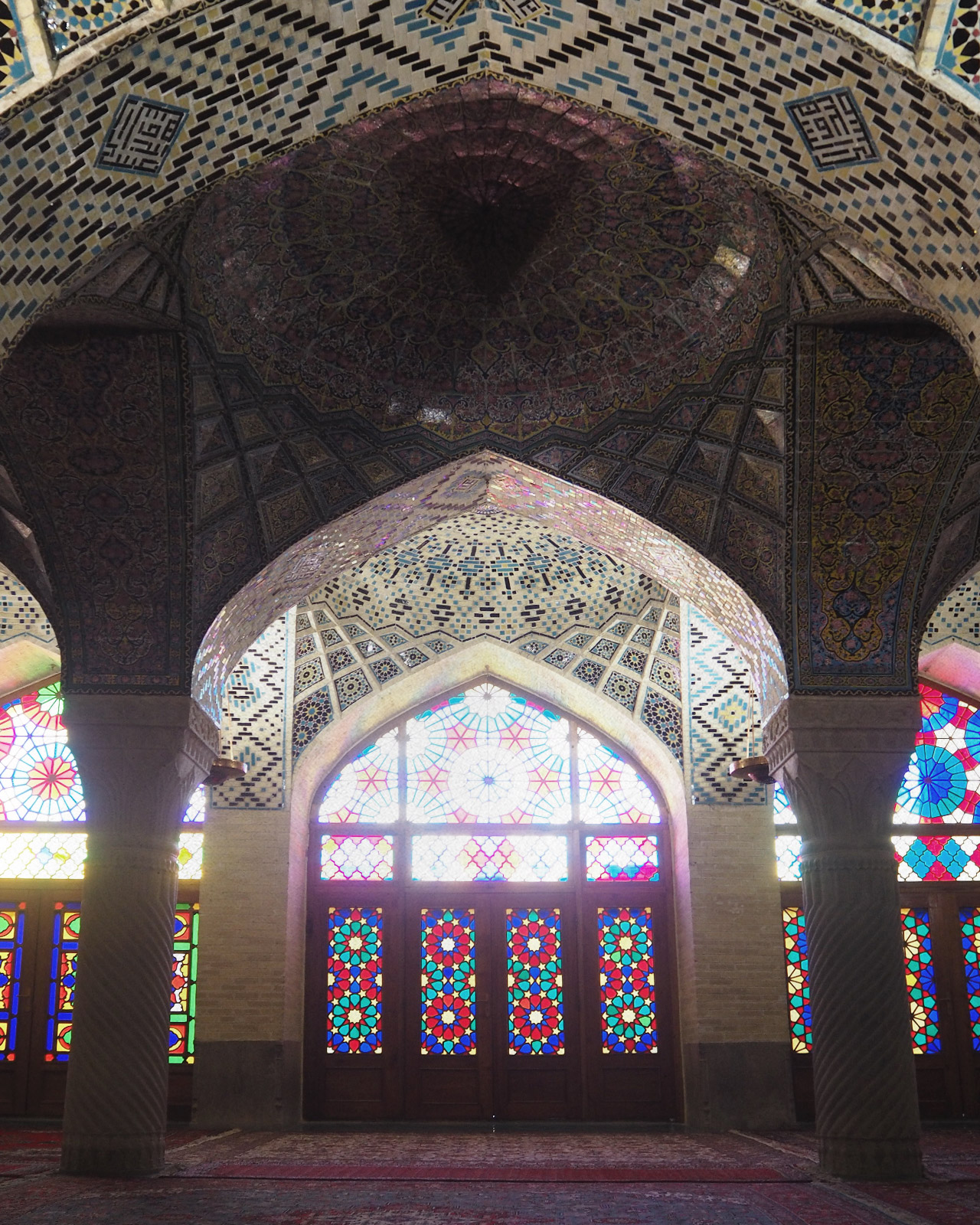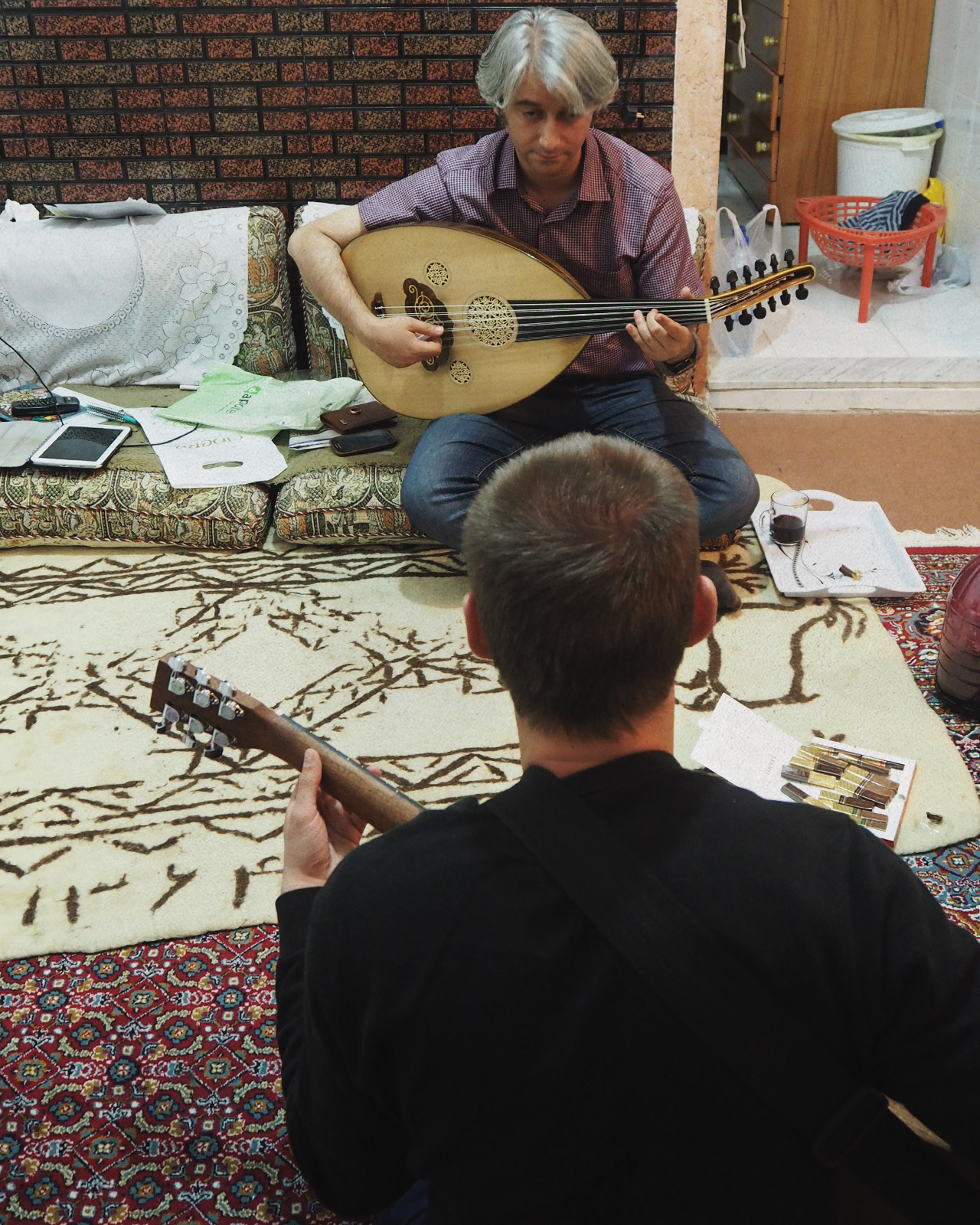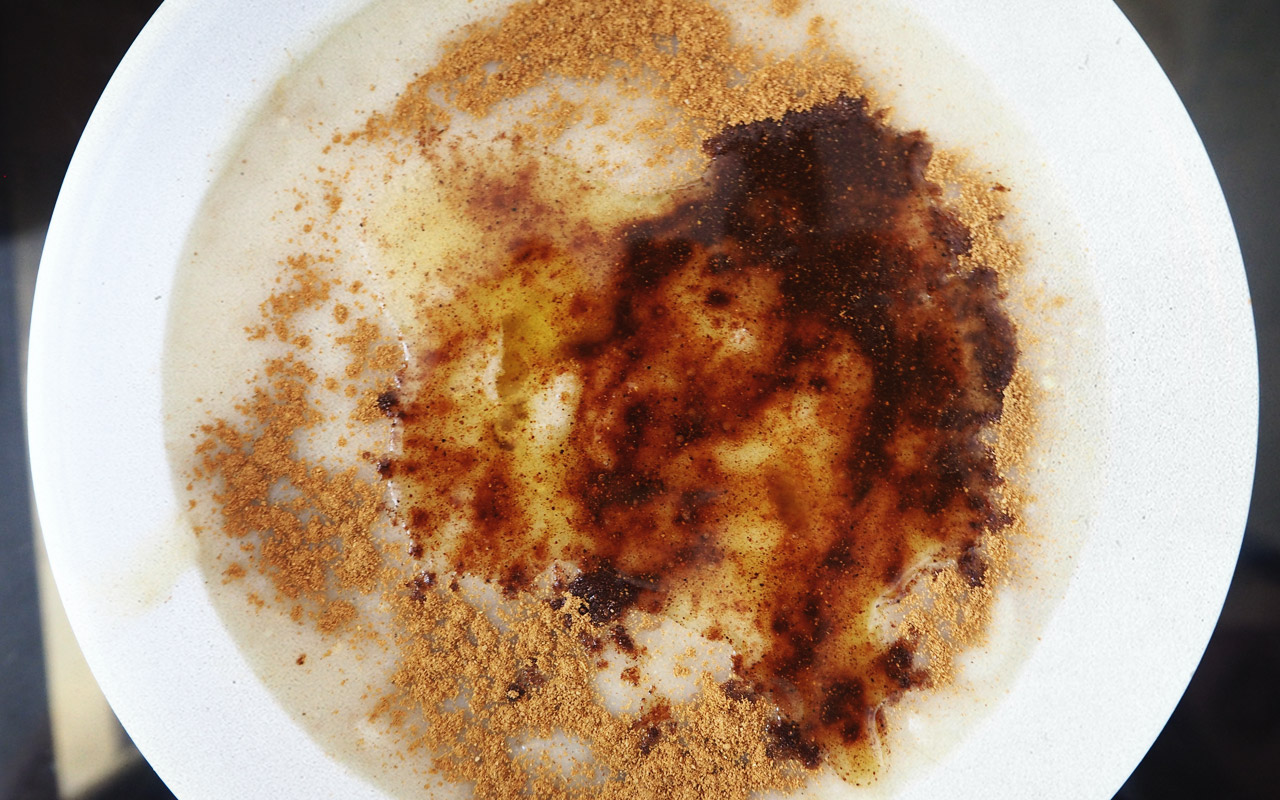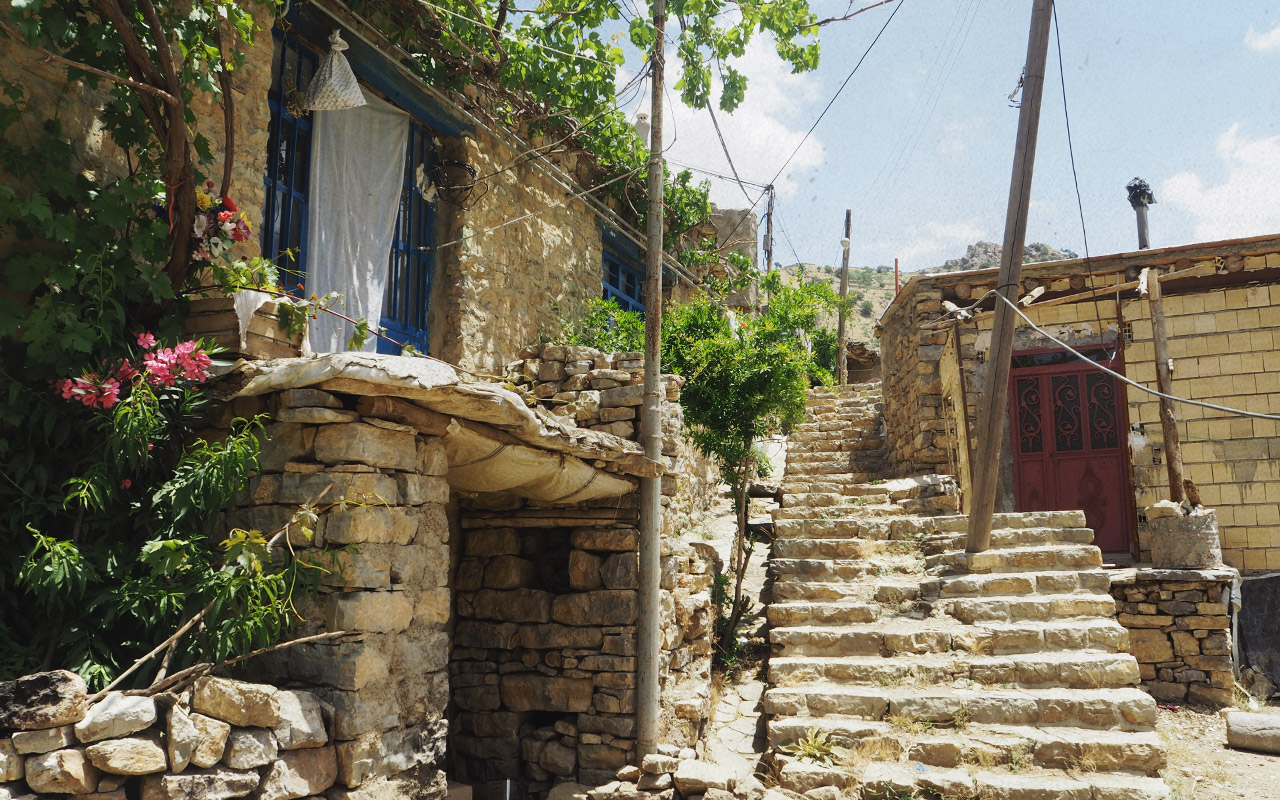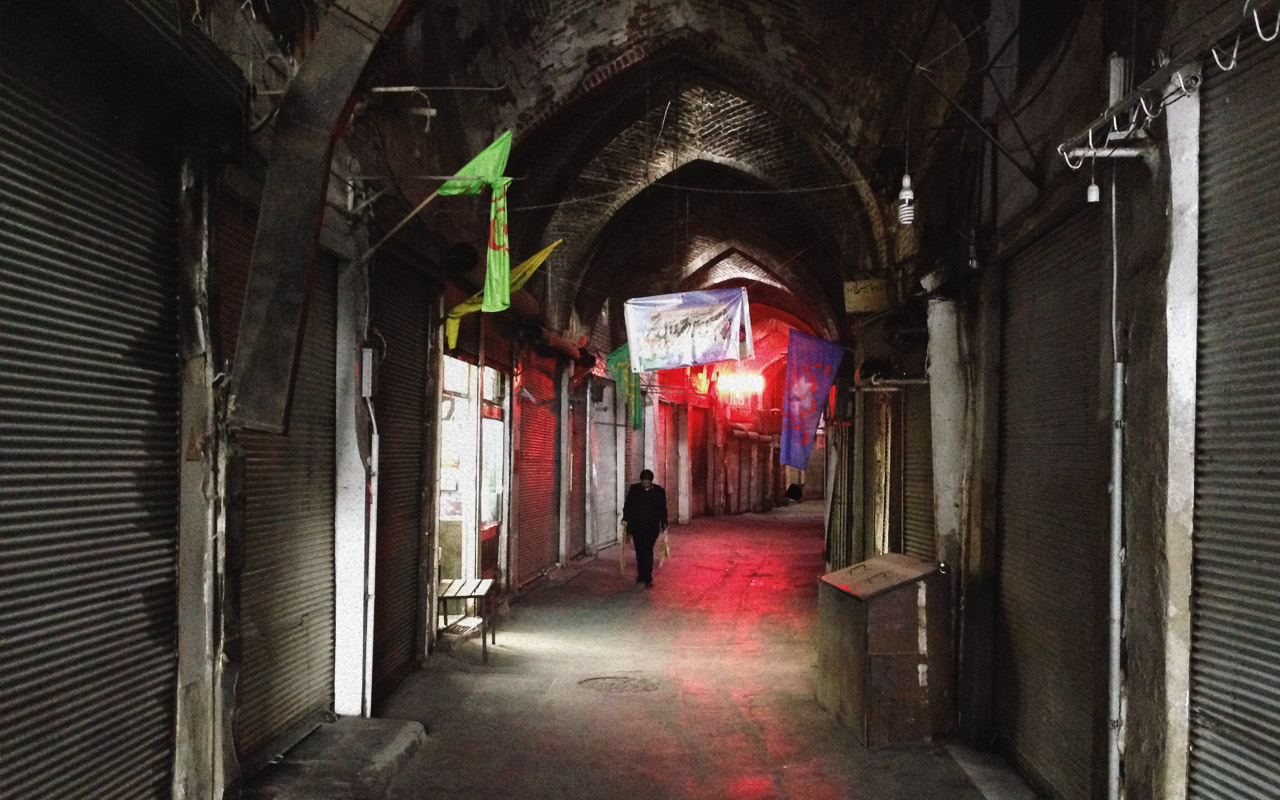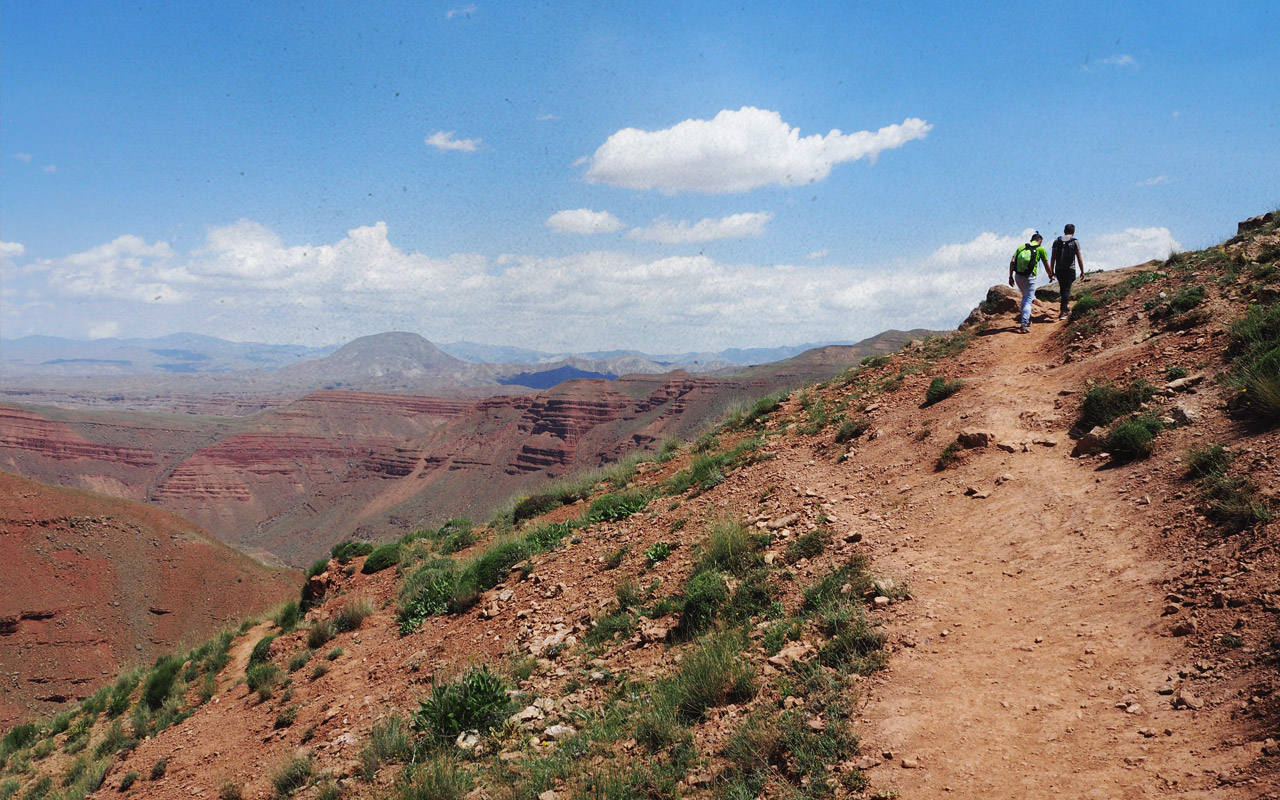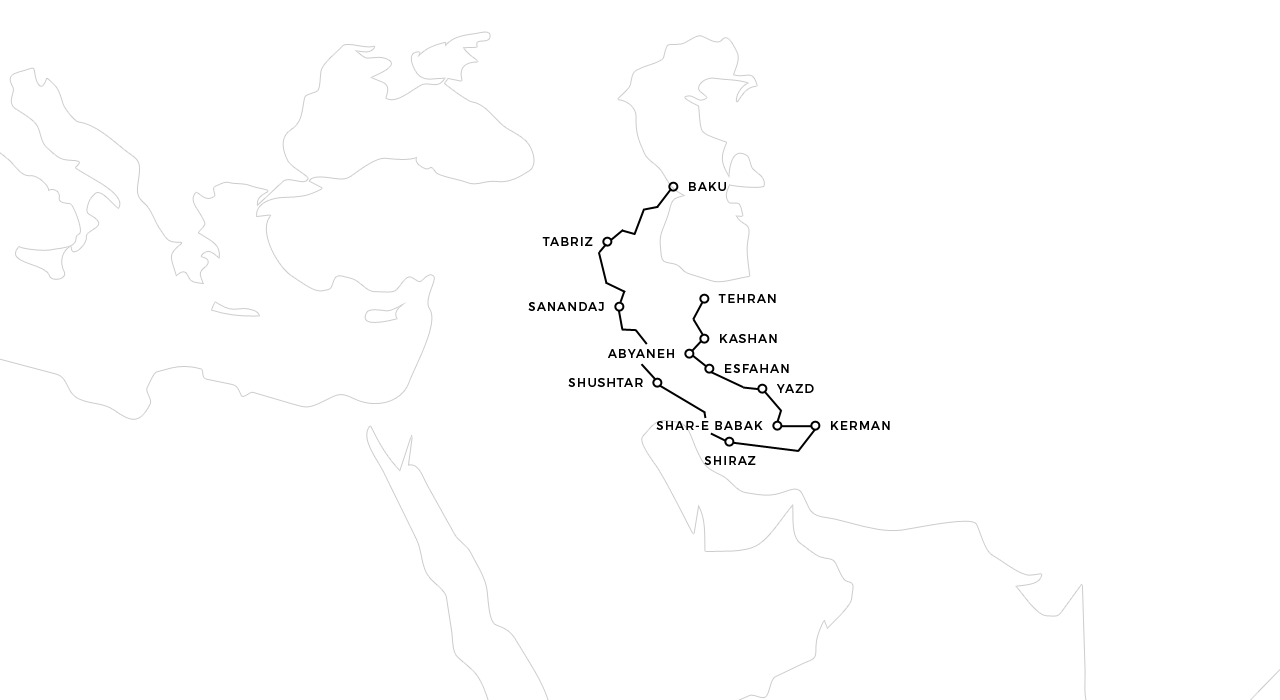Iranians will overcome any language barrier and cultural difference to proof their hospitality and generosity. We only spent a few nights in hostels and guesthouses; the other nights we spent in the homes of Iranian locals who picked us up off the streets or invited us to couch-surf. They took us to far away places and shared unique experiences which we wouldn't have seen or had without them. They shared their food and their stories, they took us in as their own.
From the first day on we spent time with locals rather than with fellow travelers. Take Mohammad Reza and his family who took two days off their normal routine to show us around Teheran. Take Mona and her husband Amir who rounded off our Tehran experience with a perfect evening at Tabiaat bridge.
Take Metty who grew up in Canada and seemed to be torn between the East and West. His incredible insight into both, this new environment as well as our western culture made for one of the most interesting evenings we had in Iran.
Take Amir, a tremendously talented photographer who took us out of Yazd and into Iran's surprisingly divers countryside. We spent three days talking about music and images, taking pictures and shooting videos. Many photographs you see on this blog, including the key visuals, were taken when stopping on the road from Yazd to Shar-e-Babak.
Take DJ and carpet shop owner Ramin, his wife Mana, his mom Tahereh, his sister Roya, her son Shahrad and their dog Remix. We were introduced by Amir who was Ramins best friend and colleague (Ramin was helping Amir to land and complete jobs as a photographer from time
to time). We ended up spending three days in Ramin's luxurious flat which had a built-in recording studio and a home cinema including a PS4.
Take Reza, a dentist from Shiraz who had all episodes of Britain's Got Talent TiVoed and took us to a five star hotel for a fabulous and surprisingly cheap vegetarian buffet.
Take Foad who showed us that Kurdistan is a nation of 40 million people with a rich culture and heritage that is somehow not allowed to be. He got us in touch with Kurdish musician and Kurdistan's Got Talent judge Hamid Haseli who taught me about the basic scales of Kurdish folk music. And he showed us around the atelier of Kurdish artist Hadi Ziaoddin who had a street and a squate named after him in Sanandaj, the capital of non-existing Kurdistan.
Take Mohammad Reza (no, not the guy from before) and his group of friends. They picked us up on a hike through the Kurdish villages in Howraman Valley and drove us through Kurdistan in their party bus full of architecture students.
And last but not least: take Milad who invited us to Tabriz, the largest city in the Iranian province of Azerbaijan (confusing, isn't it?!) and showed us yet another culture and language alongside the biggest Bazar in the world. He and his friend were the only people we met who would pick up garbage off the streets to make their country a little cleaner.
In all that time we didn't meet a single person who had prejudices against Foreigners or Westerners. But we did meet people who felt deeply ashamed because of the image their political and religious leaders had created in the West. In the same vein it was quite painful for us when we realized that we had willingly absorbed the one-dimensional media coverage on Iran and its foreign policies. We learned that politics don't mean anything at all when strangers from different cultures greet each other with a smile on their faces.
